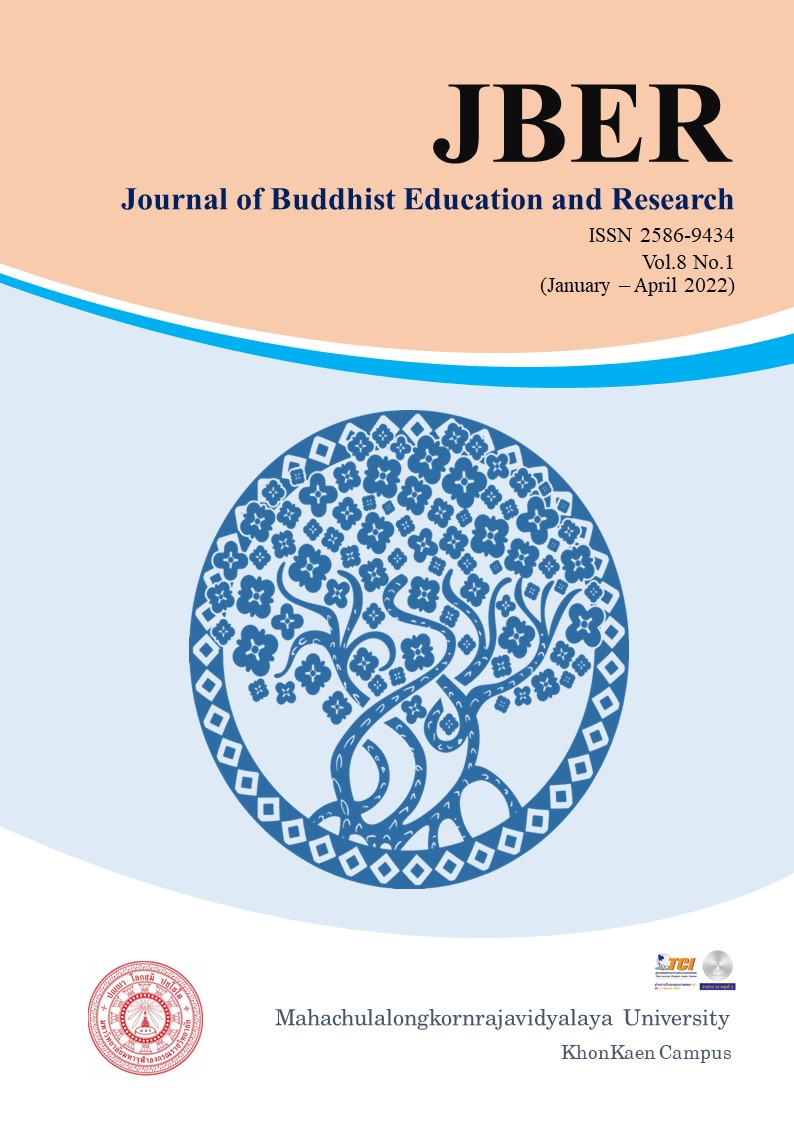THE RESULTS OF COOPERATIVE LEARNING WITH TEAM GAMES TOURNAMENTS AND ACTIVITY PACKAGES TOWARDS LEARNING ACHIEVEMENT AND ATTITUDE LEARNING IN MATHEMATICS OF MATTHAYOMSUKSA 1 STUDENTS
Keywords:
Cooperative learning by TGT technique; Activity Packages; learning achievement; AttitudeAbstract
The purpose of this research are: 1) to compare the learning achievement of Mathayomsuksa 1 students before and after learning by cooperative learning using TGT technique with Activity Packages. 2) to compare the learning achievement of Mathayomsuksa 1 students after learning by cooperative learning using TGT technique with Activity Packages and the criteria at 70% and 3) to compare the attitudes toward Mathematics of Mathayomsuksa 1 students before and after learning by cooperative learning using TGT technique with Activity Packages.
The research result finds that:
- The post-test mean score of Mathayomsuksa 1 students after learning by cooperative learning using TGT technique with Activity Packages was 23.28 with the standard deviation 3.86 which was higher than the pre-test mean score was 12.25 with the standard deviation 3.67. Meanwhile, the comparison of the pre-test mean score and post-test mean score showed the post-test mean score was higher than pre-test mean score at the .05 level of significance.
- The learning achievement of Mathayomsuksa 1 students after learning by cooperative learning using TGT technique with Activity Packages had 77.60 percentage score of total scores. Which was higher than the criteria at 70% of at the significant level of at .05 level of significance.
- The post-test mean score of the attitudes toward on Mathematics in Mathayomsuksa 1 students after learning by cooperative learning using TGT technique with Activity Packages was 3.96 with the standard deviation 0.43 which was higher than the pre-test mean score was 3.58 with the standard deviation 0.42. Meanwhile, the comparison of the pre-test mean score and post-test mean score showed the post-test mean score was higher than pre-test mean score at the .05 level of significance.
References
กระทรวงศึกษาธิการ. (2551). หลักสูตรแกนกลางการศึกษาขั้นพื้นฐาน พุทธศักราช 2551. กรุงเทพฯ: โรงพิมพ์ชุมนุมสหกรณ์การเกษตรแห่งประเทศไทย.
คมกฤช คำยวง. (2555). ผลการจัดกิจกรรมการเรียนรู้โดยใช้เทคนิค TGT เพื่อพัฒนาผลสัมฤทธิ์ทางการเรียน ทักษะการแก้ปัญหาทางคณิตศาสตร์ และเจคติ สำหรับนักเรียน ชั้นมัธยมศึกษาปีที่ 1. วิทยานิพนธ์ครุศาสตรมหาบัณฑิต สาขาวิชาหลักสูตรและการสอน. มหาวิทยาลัยราชภัฏเชียงราย.
ชัยวัฒน์ สุทธิรัตน์. (2552). 80 นวัตกรรมการจัดการเรียนรู้ที่เน้นผู้เรียนเป็นสำคัญ. กรุงเทพฯ: แดเน็กซ์ อินเตอร์คอร์ปปอเรชั่น.
_______. (2559). 80 นวัตกรรมการจัดการเรียนรู้ที่เน้นผู้เรียนเป็นสำคัญ. (พิมพ์ครั้งที่ 7). นนทบุรี: พี บาลานซ์ดีไซด์แอนปริ้นติ้ง.
เตือนใจ ทองดี. (2549). การศึกษาเปรียบเทียบผลสัมฤทธิ์ทางการเรียนและเจตคติต่อการเรียนวิชาวิทยาศาสตร์ของนักเรียนชั้นมัธยมศึกษาปีที่ 1ที่ได้รับการจัดกิจกรรมการเรียนรู้แบบออนไลน์ (e-Learning)กับการเรียนรู้แบบปกติ. วิทยานิพนธ์ครุศาสตรมหาบัณฑิต สาขาวิชาหลักสูตรและการสอน. มหาวิทยาลัยราชภัฏราชนครินทร์.
ศศิธร สาวงศ์นาม. (2556). การพัฒนาการจัดกิจกรรมการเรียนรู้คณิตศาสตร์ เรื่องเศษส่วนชั้นประถมศึกษาปีที่ 4 ด้วยกลุ่มร่วมมือแบบ TGT. การศึกษาค้นคว้าอิสระการศึกษามหาบัณฑิต สาขาวิชาหลักสูตรและการสอน. มหาวิทยาลัยมหาสารคาม.
สถาบันส่งเสริมการสอนวิทยาศาสตร์และเทคโนโลยี. (2555). การวัดผลประเมินผลคณิตศาสตร์. กรุงเทพฯ: ซีเอ็ดยูเคชั่น.
สุรดา โคกสีอำนวย. (2557). การพัฒนาผลสัมฤทธิ์ทางการเรียนคณิตศาสตร์ เรื่อง การบวก ลบ คูณ หารเศษส่วน ชั้นประถมศึกษาปีที่ 5 โดยใช้การจัดการเรียนรู้แบบร่วมมือเทคนิค TGT. วิทยานิพนธ์ครุศาสตรมหาบัณฑิต สาขาวิชาหลักสูตรและการเรียนการสอน. มหาวิทยาลัยราชภัฏมหาสารคาม.
สุวิทย์ มูลคํา และอรทัย มูลคํา. (2546). 19 วิธีจัดการเรียนรู้เพื่อพัฒนาความรู้และทักษะ. กรุงเทพฯ: ภาพพิมพ์.
อารีรัตน์ ศิริ. (2552). การศึกษาผลสัมฤทธิ์ทางการเรียนและความคงทนของการเรียนรู้ทางคณิตศาสตร์โดยใช้รูปแบบการเรียนรู้แบบ TGT เรื่อง เศษส่วน ของนักเรียนชั้นมัธยมศึกษาปีที่ 1 โรงเรียนชุมชนวัดศรีดงเย็น สำนักงานเขตพื้นที่การศึกษาเชียงใหม่ เขต 3. วิทยานิพนธ์ครุศาสตรมหาบัณฑิต สาขาวิชาหลักสูตรและการสอน. มหาวิทยาลัยราชภัฏเชียงราย.
อุมาพร พรหมบุตร. (2554). ผลการจัดกิจกรรมการเรียนรู้เรื่องการคูณกลุ่มสาระการเรียนรู้คณิตศาสตร์ชั้นประถมศึกษาปีที่ 3 ด้วยกลุ่มร่วมมือแบบ TGT. วิทยานิพนธ์การศึกษามหาบัณฑิต สาขาวิชาหลักสูตรและการสอน. มหาวิทยาลัยมหาสารคาม.
Bloom, B. S. (1971). Hand book on Formative and Summative Evaluation of Student Learning. New York: McGraw-Hill.





